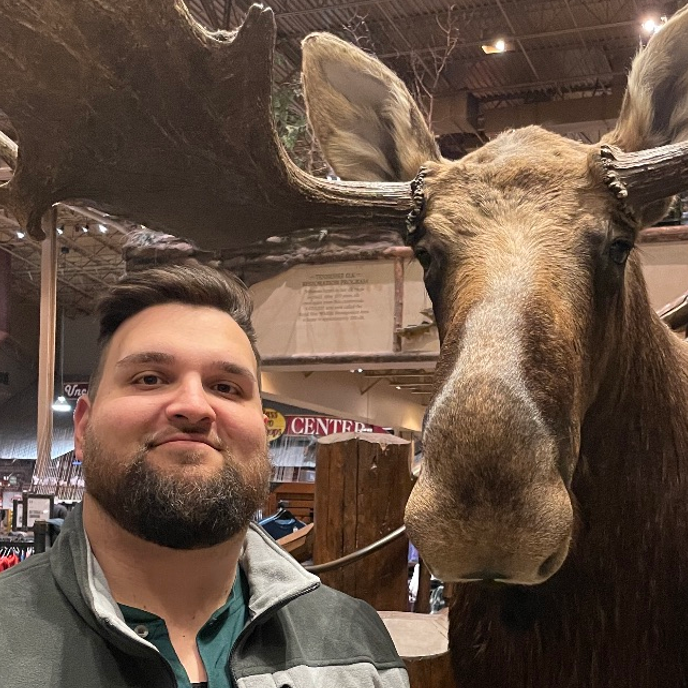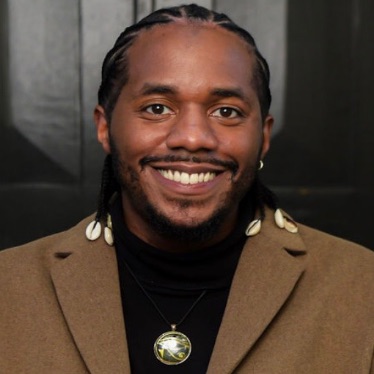A Step-by-Step Guide to Depression Therapy in Charlotte
Starting depression therapy in Charlotte often begins with recognizing signs like persistent sadness, low energy, or trouble functioning at work or school, then deciding it’s time to get help. Use MiResource’s directory to filter for licensed therapists who specialize in depression, accept your insurance, and offer in-person sessions in neighborhoods like Uptown, South End, and Ballantyne or virtual care across Mecklenburg County. Once you’ve identified a few options, schedule an initial consultation to discuss your concerns, goals, fees, and availability, and ask about evening or weekend appointments. If you’re meeting in person, plan transportation—CATS bus routes and the LYNX Blue Line serve Uptown and South End, while many offices in Ballantyne and University City have free parking. For your first session, arrive a few minutes early to complete forms and share your history, symptoms, and what you hope to change.
After the first appointment, your therapist may recommend a treatment plan that could include weekly cognitive behavioral therapy, lifestyle strategies, or referrals for medication management if needed. Commit to consistent sessions and track progress together, adjusting goals as life in Charlotte shifts—busy work weeks in Uptown, family routines in Dilworth, or school schedules near UNCC. If parking is a concern, look for validated garages in Uptown or street parking in Plaza Midwood and NoDa; virtual visits can reduce travel time entirely. MiResource makes follow-through easier by helping you compare credentials, languages, and modalities, and by providing contact details so you can reschedule or find a better fit quickly. Stay patient and encouraged—small, steady steps often lead to meaningful relief.
Guide to Accessing Local Organizations for Depression Support in Charlotte
Local organizations in Charlotte offer practical, compassionate support for people living with Depression, including peer groups, counseling referrals, crisis services, and family education. Connecting with nearby resources can reduce wait times, lower costs, and help you build a trusted care network close to home. Nonprofits like Mental Health America of Central Carolinas and NAMI Charlotte host free support groups and classes, while health systems such as Atrium Health and Novant Health provide clinical care and urgent evaluation. Public systems like Alliance Health (Mecklenburg County’s behavioral health managed care organization) can help you navigate benefits and find in-network providers. Combining these resources can make it easier to get timely, culturally responsive care in Charlotte.
Steps to identify, contact, and engage:
1) Find options: Search NC 211 , Alliance Health’s provider directory for Mecklenburg , and trusted local nonprofits like Mental Health America of Central Carolinas and NAMI Charlotte.
2) Review services and fit: Check program types (support groups, therapy, classes), schedules, locations, and insurance/self-pay details on Atrium Health Behavioral Health, Novant Health Psychiatry , and HopeWay .
3) Reach out: Call or email to confirm availability and next steps; examples—NAMI Charlotte for support groups and education, MHA of Central Carolinas for peer support and caregiver resources , Alliance Health Access and Information line .
4) Engage and follow up: Attend an initial group or intake, ask about waitlists and interim supports, and request referrals if needs change; use 988 or Atrium/Novant urgent behavioral health if you need immediate help.
Guide to Using Emergency Services for Depression in Charlotte
Use emergency services for Depression when there is immediate danger: thoughts of suicide or self-harm, plans or intent to harm yourself or others, inability to care for basic needs, severe agitation, confusion, or substance use making you unsafe. If you or someone else is at risk right now, do not wait—get help immediately. Professional crisis teams and emergency rooms in Charlotte can provide rapid assessment, safety planning, and stabilization.
Step 1: Identify a crisis
- You’re in crisis if you have suicidal thoughts, a plan or access to lethal means, recent suicide attempt, extreme despair you can’t manage, or you feel unsafe being alone.
Step 2: Make immediate contact
- Call or text 988 or chat at https://988lifeline.org for 24/7 support.
- If there is imminent danger, call 911 and ask for a Crisis Intervention Team (CIT) officer.
- Call Alliance Health (Mecklenburg’s 24/7 Access and Information Line) at 800-510-9132 to dispatch Mobile Crisis and connect to local services.
- Atrium Health Behavioral Health Help Line: 704-444-2400 for guidance to urgent and inpatient care.
Step 3: Go to a local emergency or behavioral health center
- Atrium Health Carolinas Medical Center Emergency Department, 1000 Blythe Blvd, Charlotte, NC 28203 | 704-355-2000
- Novant Health Presbyterian Medical Center Emergency Department, 200 Hawthorne Ln, Charlotte, NC 28204 | 704-384-4000
- Atrium Health Behavioral Health Charlotte (24/7 assessments), 501 Billingsley Rd, Charlotte, NC 28211 | 704-444-2400
Step 4: What to expect
- A clinician will assess safety, symptoms, and supports; you may receive crisis counseling, medication, safety planning, and referral to outpatient, intensive, or inpatient care. You can bring a support person and a list of medications. If you called 911 or Mobile Crisis, responders will focus on stabilization and safe transport if needed.
Guide to Using Parks and Green Spaces in Charlotte to Support Mental Health
Spending time in nature can ease symptoms of Depression by lowering stress, improving mood and sleep, and increasing energy through gentle movement. Green spaces provide calming sights and sounds that reduce rumination and support mindfulness. Even short visits—10 to 20 minutes—can boost motivation and help you feel more connected and grounded.
Step 1: Find nearby spots
- Explore Freedom Park, Romare Bearden Park, Little Sugar Creek Greenway, Charlotte Rail Trail (South End), Reedy Creek Nature Center & Preserve, McAlpine Creek Park, and the U.S. National Whitewater Center.
- Use the Mecklenburg County Park & Recreation website or the Charlotte Trail Guide to see maps, parking, and accessibility.
Step 2: Plan and prepare
- Check hours, weather, and crowd levels; choose quieter times if you’re feeling overwhelmed.
- Wear comfortable shoes, bring water and sunscreen, and set a small goal (e.g., a 15-minute loop).
- Consider CATS transit to the Rail Trail or parks with easy bus access.
Step 3: Make the most of your visit
- Start with an easy walk, slow breathing, and notice five things you see/hear/feel to stay present.
- Try specific features: lakeside paths at Freedom Park, art and fountains at Romare Bearden Park, shaded trails at Reedy Creek, or flat loops at McAlpine for gentle pacing.
- Invite a friend or join a low-pressure group walk for extra motivation.
Step 4: Build a routine that supports recovery
- Schedule 2–3 short visits per week and track mood before/after to see what helps your Depression.
- Rotate locations to keep it interesting; add light activities like birding at Reedy Creek or sunset strolls on Little Sugar Creek Greenway.
- Look for Mecklenburg County Park & Rec programs or Carolina Thread Trail outings and integrate park time into your care plan.
Your Guide to Understanding Depression
Depression is a common mental health condition that goes beyond everyday ups and downs, causing a persistent feeling of sadness or emptiness. It can affect how you think, feel, sleep, eat, and function at work or school. People experiencing Depression may lose interest in things they used to enjoy, feel tired or irritable, and have trouble concentrating. Physical symptoms like headaches or stomach issues can also appear, and some may feel overwhelming guilt or hopelessness. If you or someone you know is having thoughts of self-harm, immediate support is essential.
Understanding Depression matters because it is real, common, and treatable, and recognizing the signs is the first step toward relief. With the right support—such as therapy, medication, lifestyle changes, and community resources—most people improve. Learning about Depression reduces stigma and helps you respond with compassion to yourself or others. Reaching out for help is a sign of strength, and support is available when you need it.
What Depression Is and How It’s Defined
Depression is a common, treatable mental health condition that goes beyond feeling sad and makes daily life feel heavy and hard to enjoy. The American Psychiatric Association describes Depression as a lasting change in mood and interest (typically two weeks or more) that affects how you think, sleep, eat, and function. The World Health Organization notes it can range from mild to severe and often brings persistent sadness, low energy, trouble concentrating, and feelings of hopelessness. If these feelings stick around and interfere with your life, you may be experiencing Depression, and help is available.
Who Depression Can Affect
Depression can affect anyone—people of all ages, genders, and backgrounds—even those who seem to be “doing fine.” It’s sometimes more common during big life changes or stress, like teens facing school pressure, new parents adjusting to life with a baby, caregivers, older adults, LGBTQ+ individuals, and people living with chronic illness. You might notice it while juggling work and family, navigating college finals, dealing with a breakup, or after moving to a new city. Whatever your situation, Depression is common and treatable, and seeking support is a strong, normal step.
Why It’s Important to Learn About Depression
Noticing changes in mood, energy, or daily habits can be a first step in recognizing Depression. This section outlines common signs of Depression to help you spot concerns early, gently reflect on what you’re experiencing, and consider supportive next steps.
- Feeling down, empty, or hopeless most days, even when nothing specific has happened
- Losing interest in activities, hobbies, or time with others that used to feel enjoyable
- Big changes in sleep—sleeping much more or much less, or waking up often
- Low energy or fatigue that makes everyday tasks feel harder than usual
- Changes in appetite or weight without trying
- Trouble focusing, making decisions, or remembering things
- Frequent self-criticism, guilt, or feeling “not good enough,” sometimes with thoughts that life is not worth it; if this feels urgent, consider reaching out to a trusted person or a mental health professional
What People Want to Know about Depression
- How do I know if I’m ready to start therapy for Depression?
You may be ready to start therapy for Depression if you notice it’s affecting your sleep, energy, relationships, work, or daily routines. Feeling motivated to make changes, even in small steps, or feeling tired of trying to manage Depression on your own are strong signs it’s time to get support. Curiosity about understanding your feelings, wanting coping tools, or simply wanting to feel more like yourself also suggests readiness. Reaching out is a positive, courageous first step toward relief and a steadier path forward. - What should I look for when choosing a therapist who treats Depression in Charlotte?
Look for a therapist in Charlotte with proven experience treating Depression and clients with concerns similar to yours. Ask about their therapeutic approach (like CBT, mindfulness-based, or psychodynamic) and how they tailor care to your goals. Confirm credentials, licensure in North Carolina, and any Depression-specific training. Trust your fit—feeling understood, respected, and comfortable is key to progress.
- What are evidence-based therapies to treat this Depression?
For Depression, Cognitive Behavioral Therapy helps you notice unhelpful thoughts and practice new ways of thinking and acting to lift your mood. Behavioral Activation focuses on gradually increasing rewarding, meaningful activities to break the cycle of withdrawal and low energy in Depression. Interpersonal Therapy eases Depression by strengthening relationships and communication, and by addressing life changes, conflict, or grief. These approaches are well-studied and can be used alone or combined, often leading to steady, lasting improvement. - How long does therapy for Depression usually take?
Therapy for Depression varies in length based on severity, treatment type (like CBT or interpersonal therapy), personal goals, and individual progress. Many people notice improvement over several weeks to a few months, often around 8–16 sessions, but timelines differ and no specific outcome is guaranteed. Consistency, regular attendance, and commitment to practice between sessions are key to results. In Charlotte, you can find short-term and longer-term therapy options for Depression to match your needs and pace.
- Can I combine therapy for Depression with medication?
Many people with Depression find the best relief from a thoughtful combination of therapy and medication, tailored to their needs. A qualified professional can help you decide the right mix, adjust over time, and monitor progress safely. In Charlotte, coordination between therapists and medication prescribers helps ensure your care plan is cohesive and responsive. If you’re struggling, reaching out for professional guidance can be a strong step toward feeling better.
- How much does Depression therapy typically cost, and will insurance cover it?
Depression therapy costs vary based on location, provider type, and session length—expect higher fees for psychologists or longer (60-minute) sessions, and generally lower rates at clinics or with early-career providers; telehealth in Charlotte can also affect pricing. Many insurance plans cover therapy if you see an in-network provider, with copays or deductibles, while out-of-network coverage may reimburse part of the fee; sliding-scale options and community clinics, nonprofits, or university training clinics in Charlotte can reduce costs. To check coverage, call the number on your insurance card and ask about in-network providers, your copay, deductible, session limits, and any prior authorization. You can also ask the therapist about sliding-scale availability, telehealth coverage, and whether they can provide a superbill for reimbursement. - What can I do between therapy sessions to help manage my Depression?
Try small, doable actions each day to counter Depression—set a simple routine, get outside for 10–15 minutes of daylight, and add brief movement like a walk around your block in Charlotte. Practice mood tracking and thought-challenging (write the thought, look for evidence, replace it with a balanced statement) to reinforce skills from therapy. Prioritize sleep basics: consistent wake time, wind-down routine, and limiting late caffeine or alcohol. Build support by scheduling one connection—text a friend, join a Charlotte peer group, or plan a meaningful activity—to keep momentum between sessions.













